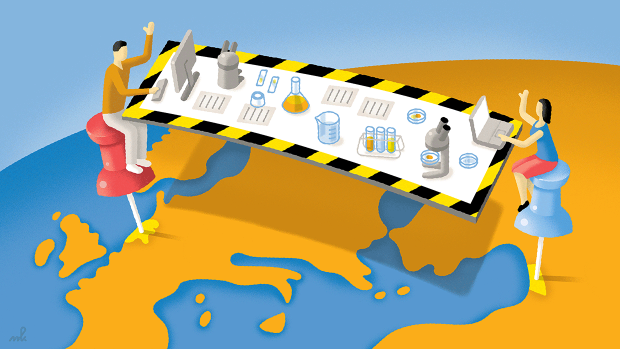
Our report scientifically substantiates complicity
In his opinion piece, Jeroen Bruggeman repeats (unscientific) viewpoints that have been used over the past years to support Israel’s continued destruction of Gaza, argue Erella Grassiani and Yolanda Jansen on behalf of the joint authors of the report (Ir)responsible Academic Ties, which is being presented today.
We agree with Jeroen Bruggeman that a scientific approach can contribute to the discussion on how to end the genocide in Gaza. His opinion piece emphasises precisely why we decided to write a comprehensive, scientifically substantiated and well-documented report on the ties between our academic institutions and Israel.
His article then repeats many (unscientific) arguments that have been used over the past two years to support Israel’s continued destruction. For example, Bruggeman exonerates the UvA by stating that “no evidence has yet been found that academic knowledge from the UvA has been misused to kill Palestinian civilians”.
Limited understanding
This may be true in a very narrow sense for the UvA, but the situation at other Dutch universities is, to put it mildly, less clear on this point, as we document in our report (Ir)responsible Academic Ties. However, this represents only a partial, in fact very limited, understanding of what direct and indirect complicity means and entails, whether moral, financial, legal or otherwise, as extensively documented in the most recent report of the UN Special Rapporteur on the Occupied Palestinian Territory.
The mere existence of academic relations with Israeli institutions means that moral, scientific and reputational support — a form of legitimisation — is being given to institutions that are central to Israel’s occupation and genocide programmes. It also supports their continued access to, for example, the rich funding opportunities of the European Horizon programmes.
War drone technology
The continuation of Israel’s genocide in Gaza depends on whether Israeli society and academia feel empowered to commit these acts and still remain part of “Europe” and “the West”. By not severing ties with Israeli institutions, we are giving them something as toxic as war drone technology: we are standing up for them worldwide, while they are closely involved in genocide.
Bruggeman goes on to write that our report “lacks an analysis of the possible consequences of a boycott”. The opposite is true. We argue that any benefits that joint research may yield will never outweigh the damage caused by continuing these ties.
Bruggeman also rejects the comparison with the boycott of the apartheid regime in South Africa, because, according to him, what is happening in Gaza is not “apartheid” or “oppression”, but “war”. Despite his conviction, the most important international institutions (the ICJ, the ICC and, recently, a UN commission) have unanimously determined that Israel’s actions are not war, but war crimes and genocide.
75 years of apartheid
And apartheid in Palestine has been going on for more than 75 years. Would a boycott work under these circumstances? If we look at Netanyahu’s fearful reaction to the prospect of even mild European sanctions, we think so.
Finally, a word about emotions and double standards. Gaza is not just a series of images on television; according to the largest humanitarian organisations, it is the worst man-made humanitarian crisis of this century — the experts who have followed all these crises closely. And as scientists, we should listen to experts, shouldn’t we? Moreover, it is not just an emotional reaction.
We are just as concerned about what is happening in Sudan or Congo. But we have no academic ties with those who commit war crimes there. We do with Israel, and that makes us complicit. A complicity that we want to end — as we did with Russia in 2022. It is not difficult to see the real “double standards” here.
Science versus emotion
Incidentally, neuroscientific research – see the work of Antonio Damasio and many others – has shown that emotions are a fundamental part of decision-making. People with limited emotional capacity have enormous difficulty making decisions at all. Equating “scientific” with “emotionless” decision-making is simply impossible, especially in this case. Here, emotions are precisely what help us to retain our humanity.
Erella Grassiani is associate professor anthropology at the UvA. Yolande Jansen is assiociare professor philosophy at the UvA.



